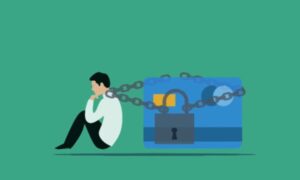A hard money loan is a variety of real-estate-backed loans typically more challenging to get. It is similar to the usual loans that people get but instead uses the property as collateral. Usually, instead of banks, private investors or companies grant loans to individuals. A hard money loan can be intensely inviting because of a borrower’s many advantages. To further understand what a hard money loan is, here are a few good-to-know.
Pros
Data showed over fifty companies offering commercial hard money loans Sarasota FL, with rates on released hard money loans reaching up to 12% on average. On average, the individual loan amounts of borrowers reach up to $292,857. Why are there so many people getting more open to borrowing hard money?
1. The chance of closing a deal or loan is higher than the traditional loans
Due to collateral (real estate or property), closing a loan becomes much easier than the usual loans that people get from a bank or organization.
2. Hard money loans are flexible
Unlike banks or traditional loans, hard money loans are flexible and do not need an underwriting process. If you have the property to use for collateral, it would be easier for you, and completing the entire loan process would just feel like a breeze.
3. There is no emphasis on payment
When an individual borrows money in the banks or an organization, there is usually an allotted period to repay the entire loan. In a hard money loan, such is not entirely the case. There is no emphasis on the payment because the borrower provided property as collateral for the loan. Naturally, a hard money lender assesses a borrower’s collateral whether such collateral is sufficient for the risks of the amount of money the person is trying to borrow.
4. The hard money lender is not concerned much about the borrower’s credit
Like what they say with hard money loans, ‘If you get a NO from the banks, don’t cry because you can still get a YES from a hard money lender.’ This is something that most borrowers like in getting a hard money loan. The lender is much more concerned about the value of the property being used as collateral. The first thing that a lender or hard money will consider is whether the property has sufficient equity.
5. No prepayment penalties
Because of the flexibility in hard money loans, a borrower can have the option to pay the loan earlier than the original loan term. There are no charges for prepayment.
6. Partnership
Hard money lenders usually offer indirect partnerships with the borrowers. Lenders are a great source of valuable contacts and bits of advice on great deals. Sometimes, they guide borrowers to find the most competitive contractors, stagers, agents, and other things.
7. Supports Fix and Flip Projects
As much as possible, banks try to avert risks regarding fix-and-flip. A bank would often say NO to a borrower offering this kind of arrangement. On the other hand, hard money loans support fix-and-flip projects. To the lenders, vacant and outdated properties usually have a higher profit margin once investors finish the projects.
Cons
As with everything else, hard money loans have risks. Here are some of the dangers of getting a hard money loan:
1. Higher Interest
One of the biggest cons of getting a hard money loan is its over-the-ceiling interest rate. Hard money loans usually have interest rates ranging from 5% to 12%. This is to compensate for the risk the lender takes when lending on a distressed property or in case an investor decides to default.
2. Down Payment requirements on fix-and-flip projects
Lenders ask for a down payment of at least 15 to 20% for investors offering a fix-and-flip project arrangement. This can be hard for a novice investor who is only starting on a fix-and-flip project, primarily when the project situates in an area where real estates are at a much higher value.
3. There are extension fees
A hard money loan term usually lasts 12 months but can be extended for five years. This arrangement is quite good, except that loan repayment extensions have fees.
4. Lenders can choose to default or foreclose a property
Similar to that of traditional loans, failure to fulfil loan terms could mean that the hard money lender has the right to default or foreclose a property.
5. Origination fees
To put it simply, these are payments that a borrower pays in order to make the entire process easier. Originations fees include the cost it takes for the hard money lender to put everything together.
Types of Hard Money Loan Borrowers
Hard money loans can be given for a variety of needs including but not limited to:
1. Property Flippers
Property flippers are investors who seek loans to fund their projects. The collateral they use for hard money loan is the project they are intending or currently developing.
2. Wholesale Funding
Hard money loans are used for wholesale flips since they may be secured rapidly. Wholesale funding is advantageous since it can be used instead of contract assignments and does not reveal your financial spread to the buyer or seller.
3. Renovate and Rent
This is somehow similar to fix and flip, but instead, the borrower renovates the property and rents it out after finishing the project. Acquisitions like these are funded similarly to property flippers but are anticipated to be refinanced for a medium to long term once the project is completed. Its goal is to maximize the property’s worth.
Hard Money vs. Soft Money
Hard money could come in different forms. In terms of economic context, hard cash could be in the form of coins. On the contrary, soft money is in the form of paper currency.
- A hard money loan is described as a real-estate-based loan arrangement where borrowers can get a quick fund depending on the value of their collateral, which is the property in the case of a hard money loan.
- A soft money loan is ALSO an asset-based type of money loan but offers a much lower interest rate than that of a hard money loan. This type of loan is a much quicker way to acquire than the other one.
On an end note, before getting a hard money loan, it is imperative to weigh down the pros and the risks of this type of loan. Although there are numerous pros of hard money loans, their cons should not be brushed off. Getting a hard money loan is much riskier than the typical money loans that people get from the banks, so getting a hard money loan should be the last resort unless it’s crucial.



































